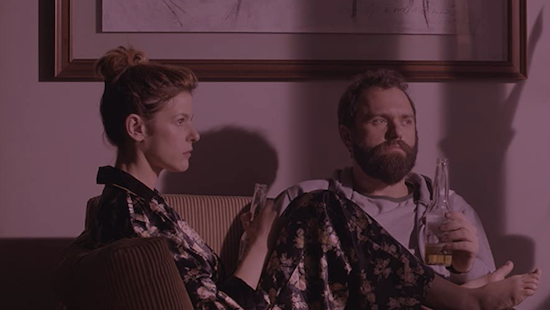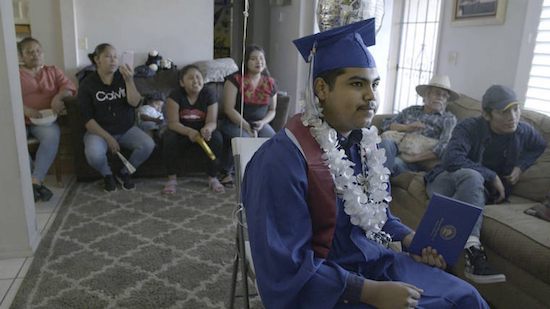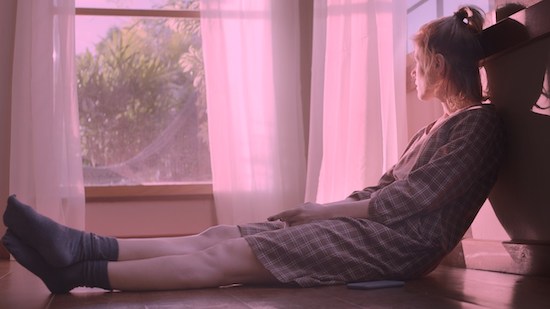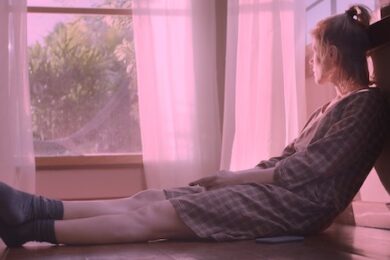The thought of an endless stream of pandemic movies was one that filled me with dread from, say, April 2020. From the moment it became clear we’d be in this for the long run, the prospect of film after film made in lockdown made my skin crawl a bit. We’ve lived it, inescapably, all-consumingly, from behind our screens inside our homes for so long – surely a tiny amount of respite, a change of pace, a different story, was the least we deserved?
The 2021 Sundance Film Festival has, obviously, had to adapt, reducing its programme but still giving us the chance to discover new titles – on our small screens around the world for now, in the hope to one day celebrate their second life as we regain some kind of semblance of our own. There is no shortage, as predicted, of movies responding to life in the age of corona. Some flirt with the apocalypse, others wonder about what the last day on Earth would feel like. But those that look to retain their value while speaking to our new normal, whatever that means, are those that sought to tell their own stories long before social distancing was in our skin, and ‘zoom’ was just something you did on a camera.
A disclaimer pops up at the start of Brazilian filmmaker Iuli Gerbase’s directorial debut The Pink Cloud, urging us to believe them when they say that any resemblance to actual events is purely coincidental – this film was written in 2017, and shot in 2019. It’s the kind of warning you’d usually read if you stick to the very end of the credits, when filmmakers gently remind you that however vivid their characters seem, they’re not people you know. But this film is different, and anyone who’s been alive since March 2019 will understand that. The Pink Cloud is about a deadly cloud that takes over the world, forcing people to quarantine until, well, no one really knows until when.
It’s impossible to keep much distance from the reality of our characters here, Giovanna and Yago – they meet at a party and fall into bed together, and wake up the next day to realise they’re stuck with each other indefinitely. Some were forced to stay in the supermarket, others at sleepovers. This cloud doesn’t say ‘stay home’ as much as it warns ‘if you leave the place you are while I arrive, you will never go anywhere else again.’
And so we see the couple adapting, getting to know one another and adjusting their life plans as this lockdown doesn’t seem to be ending anytime soon. It’s sweet at first, as the two obviously try to turn their fleeting attraction into something deeper (Eduardo Mendonça and Renata de Lélis play this with piercing conviction), but as they, and we, realise that days are turning into weeks, which are quickly turning into years, the sky’s pastel-pink hue starts to feel sickly.

Peter Nicks’ fly-on-the-wall documentary Homeroom could have deserved an eye roll from the off faced with potentially saccharine material, following the class of 2020 at Oakland High School as they live through, well, you know what they’ve lived through. But it’s never sensationalist or cloying, instead just letting these kids talk and fight through such enormous change on the cusp of adulthood – which, even sans Covid, would have obviously been lot. They’ve always had a lot more on their minds that a pandemic.
As the film maps the 2019-2020 academic year, the viewer gets to know the students for almost an hour until any virus is mentioned. And even when it is, we adapt to seeing their faces through slightly less HD cameras seamlessly, their voices still as loud and galvanising as they deserve to be. They adjust to the new circumstances of their studies and debates, and the way that the outside world bleeds into their microcosm. No one ever has been able to fully live in a bubble.
The strength of Homeroom naturally rests on the shoulders of its protagonists, but these students are eloquent, empathetic and headstrong enough to carry the responsibility. What starts as a battle to navigate on the one hand a string of unjust budget cuts and on the other the overwhelming financial investment in the school’s dedicated police force then broadens, adapting to the tragedy that punctuated the school year: the arrival of a global pandemic, the murders of George Floyd, Breonna Taylor, Ahmaud Arbery and so many more.
The overwhelming feeling, somehow, is still one of hope. Vibrant snippets of social media videos pepper the film, reminding us that the world never rarely stops. And why should it? These students, led by the wildly righteous and gracious Denilson Garibo, keep faith in their future, in the power of the youth. Homeroom harnesses a year of severe turmoil and keeps up the fight – they will rise, secure the success of their lives, whatever the world will bring.

The Pink Cloud leaves a little more of a haunting taste. Gerbase never veers too far into dystopian territory – no crazed murders or mutant monsters in sight – but that’s what makes it feel even more eerie to watch in 2020, 2021, whenever it might be until our world is entirely vaccinated. There are brief moments of hope, as the pink haze turns green, and it seems like packing a suitcase could be a good idea, and there’s the fleeting joy of finding a new hobby that lets you forget that you still haven’t gone anywhere exotic in so, so long. But ultimately it’s the claustrophobia of it all, the slow terror of watching time go by that sticks. With the end of the film comes the relief that their world is not ours – but there’s also the unease that they’ve seen a lot more years than we have, and our present isn’t doing much better for now.
Cinema that exists better as a door than a mirror – using our own present context to better admire the stories somehow written in the past – allows for an appreciation, and some kind of catharsis, of the accidental pandemic stories in which we can see ourselves. Your mileage may vary, and the threshold for the number of lockdown stories could soon reach its limit, but these two films boasting headstrong narratives and rich, complex emotional cores, will be sure to go the distance – and, perhaps, will even elicit a smile once we can finally look at them in the rear-view mirror.
The Pink Cloud and Homeroom premiered at the 2021 Sundance Film Festival. There is no official release date for either title yet.



